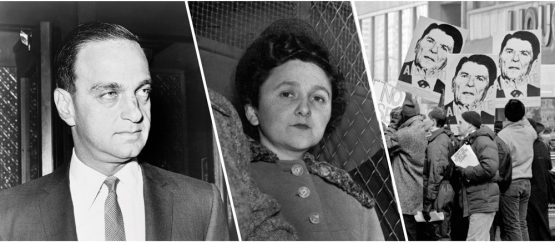
From the Director: When Angels in America opened in NYC in 1993, it broke the wall of silence on AIDS. Brilliant, theatrical and urgent, the play depicted the AIDS epidemic with startling honesty. It also takes on such a wide range of additional ideas that it feels like the one diminishes it by trying to name them all: conservatism, Mormonism, Judaism, Bolshevism, love, abandonment, justice, responsibility towards each other and ourselves, global warming, heaven and a God who chose to abandon it all and leave us to our own! Simultaneously both an epic, sprawling play and an intimate, personal play.
The angels in Angels in America ask us to stop moving. Stop progressing. Stop. Stop. Stop. They tell us that our curiosity, our restlessness, is barreling us forward into an unknown future that is full of destruction. But the play fights this idea and ultimately defies these angels; humans cannot do what they ask. We are essentially creatures of motion. The world only spins forward.
In 1986 my partner, Jim Wirz, contracted AIDS in the peak of the plague years. We were both in our twenties with a whole lot of life ahead of us. But in less than a year, he lost his battle for life at the age of 27. His panel on the AIDS quilt was one of the first in that monument to loss and life. That I too was not one of this disease’s victims is an inexplicable miracle and randomness at work. This play has unearthed so many “lost” memories and experiences and has made this project both devastating, emotional, joyous and personal for me. I dedicate this play to Jim for his very Prior-like courage, strength, humor, wit and defiance in the face of a killer angel intent on taking him from us. 32 years gone, 32 years remembered. 

From the Dramaturg:
MORMONS, ROY COHN and AIDS
by Tim West
The Pulitzer Prize-winning drama, now celebrating its 25th anniversary, is a tragi-comic tapestry rich with references from our remote and recent past. Kushner’s brainy play deploys an astounding array of cultural touchstones, from AIDS, ACT-Up and AZT to democratic socialism and Zionism, to 1950s Red Scare figures and 1980s Reagan cabinet officials.
The play is also inherently political, about “Mormons, Roy Cohn and AIDS,” as Kushner originally pitched it. As in other periods, politicians and moralists found a wedge issue in the emerging gay culture. This was confronted with fierce resistance. In the dozen years between the Stonewall Riot and the first news clippings of a ‘gay cancer,’ a vibrant community had been nurtured, come out of the closet, marched, paraded… and changed our world for the better.
Laisse-faire social policy and restriction of personal freedoms produced the gross hypocrisy that was Roy Cohn. Cohn was a political ‘fixer’ whose behind-the-scenes manipulations haunt American history, extending from his unethical but effective interference in the 1951 Rosenberg Atom Spy case and the 1953 Army-McCarthy hearings. Cohn’s influence is felt today, as he formed meaningful mentorships and interconnections with Fox founder Rupert Murdoch, self-described dirty-trickster Roger Stone, and real estate developer Donald Trump.
Opposed to this malevolent force are Louis, whose political radicalism initially lacks courage to confront contradictions in himself; Belize, whose cynical but spot-on observations contrast with earnest care-giving; and Prior, whose humor and inventiveness brings meaning to our smallest existence. Joe struggles with untenable moral strictures, makes progress, yet ends with a new equally vulnerable identity; Harper searches for truth among lies but ultimately settles for the cold comfort of knowing she must create her own truth; Hannah holds onto traditional faith, yet grows past her background with an impressive authenticity. The Angel, the most indefinable and explicable character, has a simultaneous aversion and attraction to flawed humanity, leading us to accept that this voice from on-high has no better answers than we do.
The play offers few answers with any finality. It urges us to nonetheless work together to further the conversation.
Angels in America – performed in rotating rep – runs through April 20th.